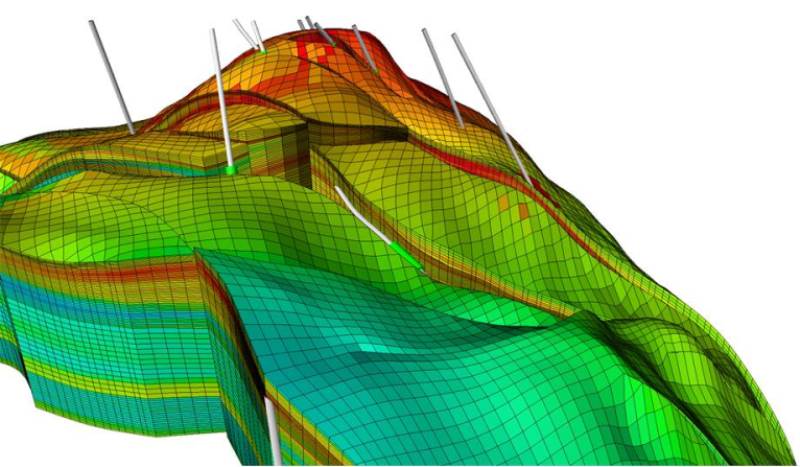Course Details
Home / Public Courses / Course Details
Reservoir Management & Monitoring (RES32)
29 Sep-3 Oct 2024 5 days Doha, QatarCourse Fee: 5350 USD
Description
This course gives you a better understanding of well & reservoir management and provides best practice examples how to manage your reservoir optimally to achieve a higher recovery factor.
Everyday there will be a real field data example either to be solved with software (if available) or analytically.
Course Level: Skill
Instructor: Emina Buket Ulker
Everyday there will be a real field data example either to be solved with software (if available) or analytically.
Course Level: Skill
Instructor: Emina Buket Ulker

Designed for you, if you are...
- A reservoir or petroleum engineer or a geoscientist responsible for the day-to-day management of reservoirs to improve their performance
The course can be given at any level depending on the audience’s experience.
How we build your confidence
- Power point presentations
- Interactive exercises
- Practical exercises on real field data to be solved with software (if available) or analytically
- Q&A
The benefits from attending
By the end of the course you will feel confident in your understanding of:- Awareness of how to increase the asset value
- Applying the principles of sound reservoir management: How to plan field development and monitor reservoir performance
- Using the interdisciplinary collaboration to efficient reservoir management
- The importance of timing and cost vs. benefit analysis
Topics
What do we mean by 'Reservoir Management'?- Course objectives
- Definition of Reservoir Management (RM)
- Concept of RM
- RM technology shift
- The importance of teamwork
- Sources and acquisition of reservoir data
What is new in Reservoir Management?
- The 'old' sequential approach
- The 'new' integrated / iterative way of RM
Reservoir Characterisation
- The importance of reservoir characterisation
- Knowledge check Q&A
- Getting to understand your reservoir
- What is important in data acquisition?
Reservoir Management Process
- The ultimate objective: Increase the value of assets
- Possible targets - optimise / maximise / accelerate production, reduce cost, decrease risks, contingency plans, flexibility
- Planning a field development - What are the key elements?
- Monitoring well / reservoir performance
- Evaluating results by comparison of actual performance against prediction
The Technology Toolkit: Understanding the Reservoir
- Static and Dynamic Modelling: Review of available systems, selection on the methodology and software
- The importance of technical and technological competency
- Integration of geological, geophysical and engineering data
- Describing the reservoir: The static model
- Describing the reservoir behaviour: The dynamic model and reservoir simulation
- Probabilistic vs. deterministic reservoir modelling: Event solution
- Fluid characterisation: PVT modelling
- Reservoir surveillance: Monitoring performance and analysing the data, QC the reservoir understanding by actual well behaviour
- Setting reservoir for predictions
- Infill wells / sidetracks - where to drill?
- Well production / injection rates?
Recovery Methods
- Maximise value through ultimate recovery and improved recovery
Well Management
- Production Optimisation Using Nodal Analysis Approach
Adding Economic Value
- Techniques to maximise economic recovery, cost vs. benefit, bbl/$
- Minimising CAPEX, OPEX and risk
- Net cash flow
- How timing will affect the value
- Investment decision
- Project selection and revision
Practical Exercises
Everyday there will be a real field data example either to be solved with software (if available) or analytically.
Related Courses
Customer Feedback
"I liked the real life examples, up-to-date information (e.g. software names and application)." - Reservoir Engineer at Qatar Energy"I liked the instructor's knowledge, examples and the integration between PT & RE." - Geologist at ARA Petroleum
"I like the flexibility of the instructor. She accepts change and does not stick to a specific way of conducting the course material." - Senior Production Technologist at Daleel Petroleum
"The instructor was able to explain and answer questions very clearly." - Reservoir Engineer at Daleel Petroleum
"Great Instructor with comprehensive information." - Production Technologist at Daleel Petroleum
"Good refresher course, I like the instructor's knowledge." - Production Technologist at Daleel Petroleum
© All rights reserved
HOT Engineering GmbH Tel: +43 3842 43 0 53-0 Fax +43 3842 43 0 53-1 hot@hoteng.com
